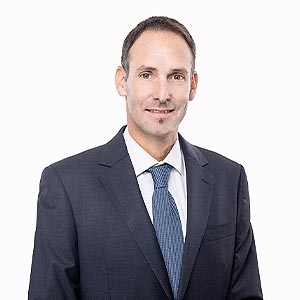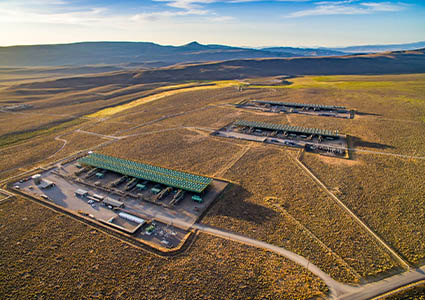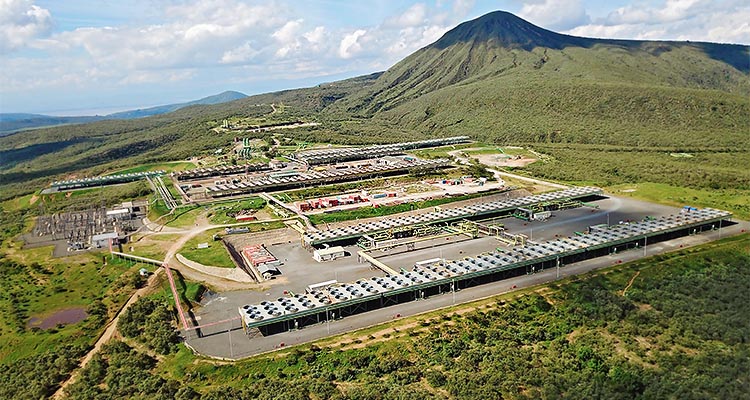How Ormat Technologies is accelerating the global energy transition with innovative solutions
Preparing to celebrate its 60th anniversary in 2025, Ormat Technologies (Ormat) boasts unparalleled renewable energy expertise as one of the world’s leading geothermal energy companies. The company is vertically integrated, overseeing the exploration, design, development, building, ownership, and operation of geothermal power plants around the globe.
Geothermal energy offers choice and flexibility, and in terms of grid stability, which is often a concern when considering renewable energy sources, geothermal is a base load energy providing 24/7 power generation. With geothermal experience gained in over 30 countries, Ormat is well positioned to empower clients throughout the process, from field analysis and resource delineation to optimized plant or equipment configurations.

Aside from geothermal, Ormat also offers innovative waste heat recovery projects through the Ormat Recovered Energy Generation (REG) unit. The REG unit is based on Organic Rankin Cycle technology, which takes waste heat from industrial processes and converts it to power that can be consumed either on site or sold back to the grid.
The company is also strengthening its presence in the Battery Energy Storage System (BESS) market, particularly in the US. Ormat Energy Storage develops, owns, and operates some of the most diverse and advanced projects in the US with In Front of the Meter (IFM) facilities providing capacity to the grid and Behind-the-Meter projects to meet the energy needs of specific organizations and corporations.
“As a vertically integrated industry leader in the renewables sector, specifically for geothermal and energy storage projects, we conduct project initiation, exploration, drilling, engineering, manufacturing, logistics, and construction all under one roof,” begins Elad Zalkin, Ormat’s Senior Vice President of Projects. “We operate several geothermal plants around the globe, as well as some battery storage, solar generation, and waste heat projects, and we currently have a total generation portfolio of 1.5 gigawatts (GW).
“Our projects are well spread around the world, with notable sites in the US, Kenya, Guatemala, Indonesia, Honduras, and Guadeloupe to name a few. We also manufacture equipment for power plants in more than 30 countries, either for power plants operated by us or for those operated by our customers.”
One of Ormat’s many key regions is Kenya, where the company maintains a long-term relationship with the local communities in which it operates, having first worked in the country more than 20 years ago. “We’ve operated in Kenya for many years, and we’ve gradually increased capacity through phased developments,” Elad elaborates. “After our latest expansion was completed in 2018, the plant’s capacity currently stands at 150 megawatts (MW). We’ve recently changed our drilling strategy in Kenya after consulting internally and with external experts, and we now have two specialist wells to enhance overall generation.
“Although we’re focused on sustainable energy, we simultaneously prioritize working within the community,” he adds. “We maintain strong communication and hire local people as much as possible. We essentially provide power resources to each country we work in, but we like to think of ourselves as simply bringing the technology and the know-how, as it takes community engagement and collaboration to successfully deliver and operate a project.”
Planned developments
 The US is another significant geography for Ormat, particularly for geothermal projects as well as the company’s evolving BESS portfolio. “We are currently the largest owner and operator of geothermal power plants in the US,” Elad states. “With plants in Southern California, Nevada, Oregon, and Utah, to name a few examples, we’re constantly expanding our geothermal presence through our in-house research and development capabilities.
The US is another significant geography for Ormat, particularly for geothermal projects as well as the company’s evolving BESS portfolio. “We are currently the largest owner and operator of geothermal power plants in the US,” Elad states. “With plants in Southern California, Nevada, Oregon, and Utah, to name a few examples, we’re constantly expanding our geothermal presence through our in-house research and development capabilities.
“Alongside organic growth, we’ve taken advantage of some merger and acquisition activity in the US. Over the last few years, we’ve acquired several companies or assets including US Geothermal, the geothermal assets from Terra-Gen, and several power plants from Enel Green Power. For most of these plants, we’ve upgraded them by increasing the production and availability of renewable energy, and we have more developments planned to further enhance or strengthen the plants.”
Enhancing efficiency
Ormat has also recently won an Engineering, Procurement, and Construction (EPC) contract to deliver the Te Mihi Stage 2 101MW geothermal power plant in New Zealand for Contact Energy. “We’ve worked with Contact Energy for more than 20 years, so we’re delighted to have won this latest contract for the Te Mihi plant,” Elad shares. “It not only demonstrates the level of customer satisfaction we deliver but also reflects the positive performance of our projects and plants.”
When it comes to research and development, Ormat has a dedicated team to identify opportunities for resource exploration around the globe. “Staying ahead of the curve is crucial to our success,” Elad says. “The world is changing, material costs are rising, and electricity prices are soaring; there has never been as much emphasis on being more efficient than we were the day before.
“Our vertical integration is a strategic advantage, however, as we can monitor products for five, ten, or even 20 years to evaluate their long-term usage, the impact of design, and any manufacturing challenges. We have an extensive list of greenfield projects and we’re constantly looking to identify opportunities for strategic growth.
“We’ve made significant investments in technology to stay competitive and innovative,” he continues. “We’re using AI to optimize operations, predict maintenance needs, and improve overall efficiency. By leveraging AI in these ways, we can analyze vast amounts of data to make informed decisions quickly and accurately.
“We’re also solidifying our position as the market leader in Organic Rankin Cycle technology. By continuing to innovate and improve our systems, we’re enhancing efficiency and reliability, making this technology the preferred choice for converting low temperature heat into electricity.”
With many expansion plans in place, we’re keen to hear Elad’s vision for Ormat’s future. “As we strive to maintain our position as the largest geothermal company in the world, our goal is to expand our operations around the globe by tapping into new markets, leveraging our extensive experience in innovative technologies, and increasing our current capacity,” he says.
“We’re committed to expanding our BESS capabilities, and considering the ever-increasing demand for renewable energy, we aspire to be one of the largest BESS operators in the US. This will not only support the integration of renewable energy into the grid but also provides increased stability and resilience to overall energy infrastructure.
“Overall,” Elad concludes, “our vision for the future is to lead multiple aspects of the energy sector, driving forward the globe’s transition to a more sustainable, clean, and resilient energy system.”
